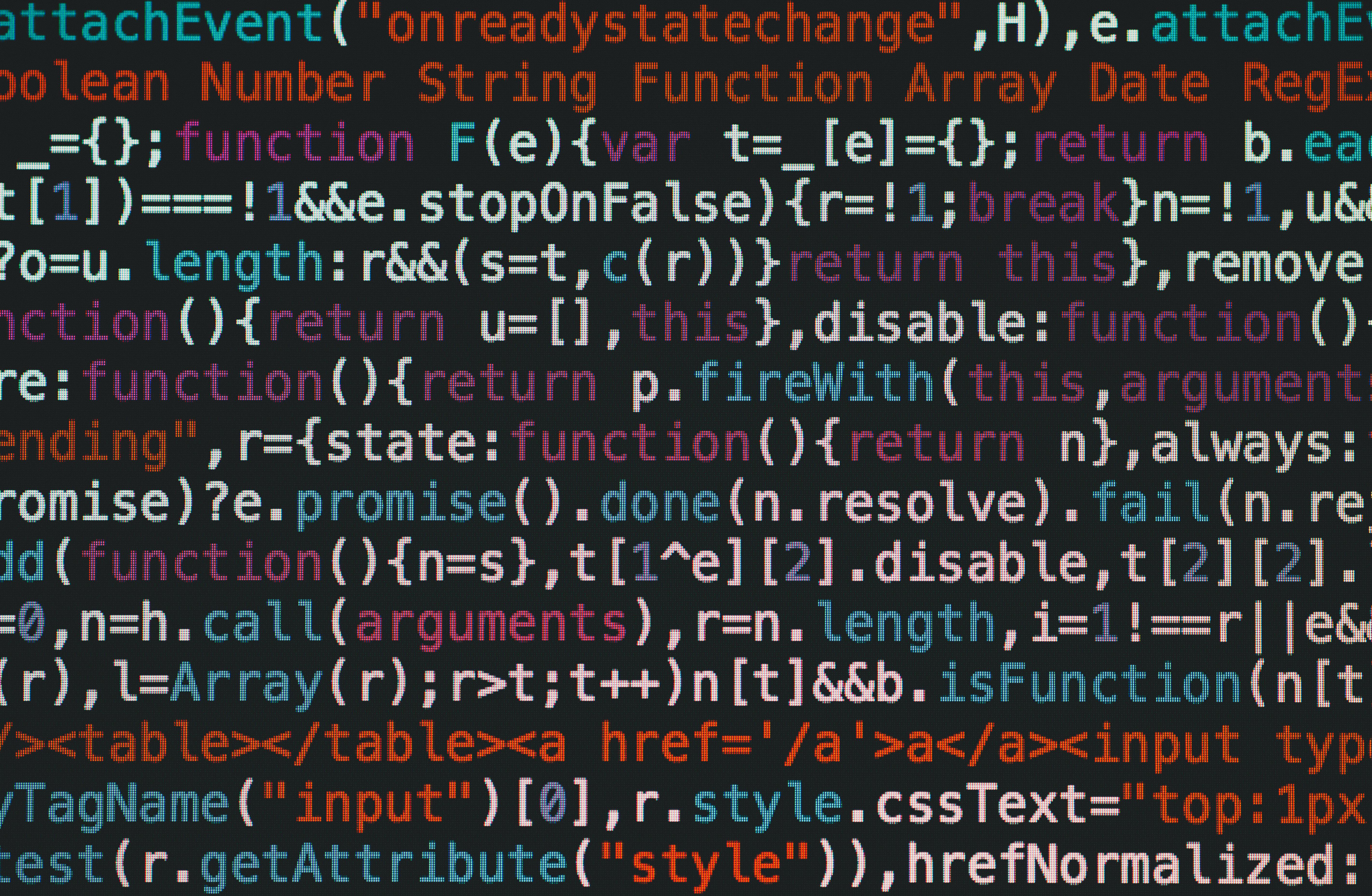How a New AI Exposed Football's Rigged Betting Reality
Estimated Reading Time: 11 minutes
TL;DR
The revelation that an AI can detect alleged manipulation in football matches and referee decisions is sending shockwaves through the sports world, suggesting that traditional betting tips may be increasingly unreliable. This AI analysis scrutinizes vast datasets of game statistics, betting patterns, and player performance to flag anomalies indicative of foul play, moving beyond human capabilities to identify sophisticated rigging. For bettors, this means a critical shift from relying solely on form guides and expert opinions to understanding the deeper currents of game integrity, prompting a re-evaluation of every wager. The focus keyword, An AI reveals football's rigged matches and referee decisions. Discover how alleged manipulation questions the sport's integrity, making traditional betting tips obsolete, underscores a new era where data-driven insights are paramount. This technological advancement not only challenges the very foundation of fair play but also compels bettors to seek more secure and transparent platforms, such as those that prioritize integrity and provide robust security measures for their users.
The implications for football are profound, demanding increased transparency from governing bodies and a renewed commitment to ethical conduct. As AI tools become more sophisticated, their capacity to expose systematic corruption will only grow, creating a cleaner, albeit more scrutinized, playing field. Bettors should adapt by diversifying their strategies, prioritizing informed analysis over gut feelings, and utilizing platforms that offer clear commitments to fair betting practices. The age of unquestioned football integrity is over; the era of data-driven vigilance has begun, forever altering how we view and bet on the beautiful game.
Key Takeaways:
Table of Contents
The Whistleblower in the Machine: How AI is Unmasking Football's Dark Secrets
The roar of the crowd, the tension of a penalty shootout, the sheer unpredictability of the beautiful game – these are the hallmarks that have captivated billions for generations. Yet, beneath the surface of this global spectacle, a troubling narrative has long simmered: whispers of rigged matches, dubious referee decisions, and the unseen hand of manipulation. For years, these suspicions were difficult to prove, often dismissed as cynical conjecture. However, the game has changed. Today, advanced artificial intelligence is stepping onto the pitch, not as a player, but as a forensic analyst. The startling truth is that an AI reveals football's rigged matches and referee decisions. Discover how alleged manipulation questions the sport's integrity, making traditional betting tips obsolete. This technological breakthrough is not just a game-changer; it's a fundamental shift in how we understand, consume, and bet on football.
For seasoned bettors and casual fans alike, this revelation casts a long shadow over every outcome. What happens when the very foundation of fair play is called into question by an impartial algorithm? The traditional wisdom, the meticulous research into team form, player injuries, and head-to-head records, suddenly seems insufficient, almost naive. Our quest at Free Betting Tips has always been to provide you with the sharpest insights and the most reliable strategies. Now, we confront a new frontier where the odds might be skewed not just by chance, but by design. This article will delve deep into how AI is pulling back the curtain on football's alleged dark corners, what it means for the integrity of the sport, and crucially, how you, the discerning bettor, can navigate this brave new world.
Background & Context
The concept of match-fixing in sports is not new. From ancient Olympic games to modern-day athletics, the allure of financial gain or competitive advantage has, unfortunately, led some to compromise the integrity of competition. Football, with its global reach and massive betting markets, has historically been a prime target for such illicit activities. The methods range from direct bribery of players and officials to more subtle forms of influence. However, proving these instances has always been a monumental challenge, often relying on whistleblower testimony or extensive, slow-moving investigations.
The advent of 'big data' and advanced analytical tools has revolutionized many industries, and sports is no exception. Initially, AI in football focused on performance analysis, optimizing training regimens, and enhancing tactical decisions. Now, its capabilities are being turned towards integrity. AI algorithms can process colossal amounts of data—player statistics, referee performance metrics, geographical betting patterns, historical match data, and real-time odds fluctuations—at speeds and scales impossible for humans. This allows for the identification of subtle anomalies that might indicate manipulation. For instance, an unusually high number of fouls in a specific area, an unexpected substitution, or a sudden, unexplained shift in betting odds just before a key moment can all be red flags.
The problem of match manipulation is truly global. Reports from organizations like Sportradar, a leading supplier of sports data and integrity services, consistently highlight the pervasive nature of suspicious betting activities across various leagues and continents. In 2023, Sportradar's Universal Fraud Detection System (UFDS) flagged over 1,000 suspicious matches across 100 countries, indicating a persistent threat to sports integrity worldwide. This staggering number underscores the scale of the challenge that AI is now directly confronting.

Furthermore, the human element, particularly refereeing, has always been a point of contention. Debates over controversial calls are as old as the game itself. However, when these decisions consistently favor one side in statistically improbable ways, or when patterns emerge across multiple matches involving the same officials, questions arise. Historically, subjective human judgment made it difficult to pinpoint deliberate bias versus genuine error. Now, AI can analyze thousands of referee decisions, comparing them against objective criteria and statistical norms to highlight deviations. For example, a study by the University of Leuven found that home teams receive approximately 5-10% more favorable decisions than away teams, a bias that, while not necessarily indicative of corruption, shows the susceptibility of human judgment to external factors like crowd pressure. When AI layers this with betting data, it creates a much clearer picture of potential manipulation.
Key Insights or Strategies
The core insight from AI's foray into football integrity is that the traditional landscape of betting has irrevocably shifted. Where once insider knowledge or expert intuition provided an edge, today, understanding data anomalies and integrity reports is paramount. The focus keyword, An AI reveals football's rigged matches and referee decisions. Discover how alleged manipulation questions the sport's integrity, making traditional betting tips obsolete, is not just a statement, but a call to action for every bettor to re-evaluate their approach.
The Rise of Algorithmic Vigilance
AI systems employ machine learning models to detect patterns that deviate from expected norms. This includes analyzing ball possession, shot accuracy, corners, fouls, and even player energy levels against real-time betting odds. If a team with consistently strong performance suddenly underperforms drastically, especially when coupled with unusual betting activity on the opposing team or specific in-game events, AI flags this as suspicious. These systems are constantly learning, becoming more sophisticated at differentiating genuine upsets from engineered outcomes.
Betting Market Anomalies
One of the most potent weapons in AI's arsenal is its ability to monitor global betting markets. Unusually large bets placed on specific outcomes, sudden drops or surges in odds without clear on-field justification (e.g., a major injury or red card), or a high volume of bets originating from specific, unusual geographical locations can all indicate prior knowledge of a fixed outcome. AI can track these micro-movements across hundreds of bookmakers simultaneously, spotting the tell-tale signs of insider trading in sports.

Referee Decision Analysis
Beyond match outcomes, AI is dissecting the thousands of decisions made by referees. It can identify patterns in subjective calls like offsides, fouls, and penalty awards. By comparing a referee's historical decision-making against game conditions and player actions, AI can highlight statistical biases or inconsistencies. For example, if a referee consistently makes calls that disproportionately benefit one team in tight matches, especially when paired with suspicious betting activity, this raises significant red flags.
For those looking to navigate this complex betting environment, it’s crucial to seek out platforms that prioritize integrity and transparency. When placing your bets, consider reputable bookmakers that are known for their robust security and fair play policies. For our readers in Kenya, we highly recommend you Place your bets on Bantubet Kenya, a platform known for its commitment to secure and responsible betting, ensuring your wagers are placed in a trustworthy environment.
Actionable Steps for Bettors:
Case Studies, Examples, or Comparisons
While the specifics of ongoing AI investigations into match-fixing are often confidential to protect investigations, we can draw parallels from historical cases and publicly available integrity reports to illustrate the power of AI. Consider the infamous Calciopoli scandal in Italian football in 2006, where telephone interceptions revealed widespread manipulation of referee appointments and match outcomes. While this was exposed through traditional human intelligence, an AI system today could have potentially detected the anomalies much earlier.
Imagine an AI monitoring Serie A matches in the lead-up to Calciopoli. It would have noticed unusual patterns in referee assignments for key matches, perhaps certain referees consistently being appointed to games involving specific clubs, especially when those clubs were involved in suspicious betting activities. The AI would also flag statistically improbable outcomes or a disproportionate number of favorable decisions awarded to certain teams in crucial moments. For instance, if Juventus, a club heavily implicated, consistently received penalty calls or had opponents sent off at critical junctures, an AI could cross-reference this with betting data on specific in-game events.
A more contemporary example involves the detection of unusual betting patterns in lower-tier European leagues. Sportradar, for example, frequently reports on suspicious betting activity in obscure matches that often involve lower prize money and less media scrutiny, making them easier targets for fixers. In one instance, a match in a lesser-known Eastern European league saw a massive, inexplicable shift in live betting odds towards an unlikely draw, despite one team dominating. This shift, combined with unusual player performance data (e.g., players suddenly slowing down or making uncharacteristic errors), would trigger an immediate alert from an AI integrity system. The match eventually ended in a draw, just as the suspicious betting patterns predicted, highlighting a clear case of potential manipulation. Such insights, when gathered and analyzed by AI, provide compelling evidence for further human investigation, ultimately leading to more decisive action against corruption. (Source: Sportradar Integrity Services Reports, various years).
Common Mistakes to Avoid
In this new era of AI-uncovered manipulation, many bettors continue to make critical mistakes that can lead to significant losses. The most common pitfall is the stubborn adherence to outdated betting methodologies, ignoring the very real possibility that the game is not always played on a level field. Relying solely on historical head-to-head records or simple form guides without considering the integrity context is a dangerous game.
Another major error is failing to acknowledge the impact of human bias. While AI strives for objectivity, human bettors are susceptible to emotional attachments to teams, overconfidence, and the 'gambler's fallacy.' This can blind them to obvious statistical anomalies that an AI would immediately flag. For instance, continuously betting on a 'big club' to win, even when their recent performance is highly questionable or their odds show unusual fluctuations, can be a costly mistake.
Ignoring geo-specific betting trends is also a significant oversight. Match-fixing often has regional hubs, and unusual betting volumes originating from certain areas, especially on obscure matches, are a strong indicator of potential manipulation. Bettors who don't consider this global context are missing a crucial piece of the puzzle. Lastly, placing bets with unregulated or untrustworthy bookmakers exacerbates the risk. Such platforms may not have robust integrity monitoring or could even be complicit in illicit activities, leaving bettors vulnerable to unfair practices and unhonored payouts. Always prioritize licensed and reputable betting sites.
Expert Tips or Best Practices
Navigating the complex and potentially compromised world of football betting requires a sharpened approach. To truly thrive, bettors must become more analytical, more skeptical, and more technologically informed. Our expert tips are designed to equip you with the best practices for this new reality, where an AI is actively revealing football's rigged matches and referee decisions.
Firstly, always cross-reference information. Don't rely on a single source for your betting intelligence. Consult multiple sports news outlets, analytical sites, and even social media discussions from reputable football journalists. Look for consistency in reporting and pay close attention to any emerging narratives about questionable decisions or performances.
Secondly, embrace data analytics tools. While not all AI integrity systems are publicly available, many sports analytics platforms offer in-depth statistics that can help you spot anomalies. Tools like Football Data Science with Python on Amazon (this is a book, but represents a tool that teaches data science for football) can help you develop your own analytical skills to identify unusual patterns in player performance, team statistics, or referee decisions. Understanding these underlying metrics can give you an edge in detecting when something feels 'off.'
Thirdly, be highly selective with your bets. In an environment where integrity is under question, fewer, more thoroughly vetted bets are always better than numerous speculative ones. Focus on major leagues with robust oversight and high media scrutiny, as these are generally harder to manipulate undetected. Even then, apply a critical lens.
Finally, and perhaps most importantly, utilize only reputable and secure betting platforms. These platforms not only offer better security for your funds but also often have their own integrity departments that monitor for suspicious activity, sometimes even leveraging AI themselves. For our Kenyan audience, we highly recommend you Place your bets on Bantubet Kenya. Their commitment to fair play and a secure betting environment provides an added layer of confidence in these uncertain times. Choosing a trusted platform is not just about convenience; it's about protecting your investment in a sport facing unprecedented scrutiny.
Future Trends or Predictions
The integration of AI into sports integrity is still in its nascent stages, but the future promises even more sophisticated detection methods and, hopefully, a cleaner game. We predict several key trends that will shape the betting landscape in the coming years, particularly with a geo-specific focus on emerging markets like Kenya and the broader African continent, where football betting is incredibly popular.
Firstly, AI will move beyond just detecting anomalies to actively predicting potential risks. By analyzing historical data, player and referee networks, and socio-economic factors, AI could flag matches with a higher propensity for manipulation *before* they even occur. This proactive approach would allow integrity bodies to monitor specific games with increased vigilance, potentially preventing fixing attempts altogether.
Secondly, there will be an increased demand for transparent referee performance metrics. As AI continues to expose biases or suspicious patterns in officiating, football governing bodies will face mounting pressure to publish detailed performance evaluations for referees, potentially even incorporating AI-driven feedback into their training and appointment processes. This could lead to a new era of 'AI-assisted refereeing' that goes beyond VAR, focusing on ethical consistency.
For regions like Kenya, where the passion for football betting is immense, this also means a greater focus on local league integrity. As international betting markets increasingly target African leagues, the need for robust, AI-powered integrity systems within these regions will become critical. Local football associations, potentially in partnership with global integrity firms, will need to invest in such technologies to protect their sport and their betting markets. This also means local bookmakers, such as Bantubet Kenya, will likely enhance their own AI capabilities to protect their users and maintain market trust.
Finally, we foresee a rise in 'integrity-certified' betting markets. Platforms that can demonstrate they use advanced AI to vet their matches and betting odds for fairness will gain a significant competitive advantage, attracting bettors who prioritize security and transparency. The future of football betting will not just be about picking winners, but about picking games that are genuinely fair competitions.
Conclusion
The revelations that an AI can uncover football's rigged matches and referee decisions marks a pivotal moment for the sport and its vast betting ecosystem. This isn't just about a few bad apples; it's about a systemic challenge to the very integrity of the game. For bettors, the message is clear: traditional betting tips, once the cornerstone of informed wagers, are increasingly obsolete in a landscape potentially tainted by unseen manipulation. The era of unquestioning faith in every result is over, replaced by a necessary skepticism and a demand for verifiable fairness.
The beautiful game is at a crossroads. While the exposure of manipulation might be unsettling, it also presents an opportunity for fundamental reform. AI, as a neutral arbiter, can help cleanse the sport, pushing governing bodies, teams, and officials towards greater transparency and accountability. For you, the bettor, adapting to this new reality is not just advisable, it's essential for sustainable and responsible betting. Embrace the analytical tools, stay informed about integrity reports, and critically evaluate every piece of information.
In this evolving environment, choosing a trustworthy and secure betting platform becomes more critical than ever. Ensure your wagers are placed with operators who are committed to integrity and responsible gaming. For our valued readers in Kenya, we strongly encourage you to make your choices wisely and Place your bets on Bantubet Kenya. By choosing reputable platforms, you not only protect your investment but also contribute to fostering a cleaner, fairer future for football betting. The game may be changing, but with vigilance and smart strategies, you can continue to enjoy the thrill of the sport while minimizing your risks.
FAQs
Here are some frequently asked questions regarding AI's impact on football integrity and betting:
Q1: How exactly does AI detect match-fixing?
A1: AI systems analyze vast datasets, including betting patterns, player performance statistics, referee decisions, and historical match data. They look for statistical anomalies or deviations from expected outcomes that cannot be explained by normal sporting fluctuations. For example, sudden, unexplained shifts in betting odds paired with unusual player errors or referee calls in critical moments can be flagged as suspicious. These systems often employ machine learning algorithms to continuously refine their detection capabilities. (Source: Sportradar Integrity Services Whitepapers)
Q2: Are all football leagues susceptible to match manipulation?
A2: While major, high-profile leagues often have more robust integrity measures and media scrutiny, match manipulation can occur at any level of football, from top-tier competitions to lower divisions and youth matches. Lower leagues are sometimes considered more vulnerable due to less financial oversight, lower player salaries, and less public attention. AI's role is particularly crucial in these less-scrutinized areas. (Source: FIFPRO Global Player Survey)
Q3: How reliable is AI in identifying rigged matches compared to human investigations?
A3: AI is incredibly reliable at identifying *patterns and anomalies* that human investigators might miss due to the sheer volume of data. It serves as an excellent first line of defense, flagging suspicious activities for human experts to then investigate further. While AI can't replace human intuition and legal processes, it significantly enhances the speed, scale, and objectivity of initial detection, making investigations much more targeted and effective. (Source: UEFA Integrity Reports)
A4: VAR was introduced to correct clear and obvious errors, theoretically making decisions more objective. However, controversies still arise, and the *interpretation* of VAR decisions can vary. While VAR reduces some forms of overt manipulation, AI can still analyze VAR-assisted decisions for consistent biases or unusual patterns over time by specific officials, offering another layer of scrutiny beyond the immediate on-field review. (Source: IFAB Laws of the Game)
Q5: What can bettors do to protect themselves if matches are being rigged?
A5: Bettors should prioritize reputable, licensed betting platforms that adhere to strict integrity standards and have their own fraud detection systems. Diversify your research beyond traditional form guides, looking for news from sports integrity organizations. Be skeptical of unusually high odds or sudden, unexplained market shifts. Focus on major leagues with higher transparency and always bet responsibly, only wagering what you can afford to lose. (Internal Link Suggestion: Expert Tips or Best Practices)
Q6: How will AI's role in detecting match-fixing evolve in the future?
A6: In the future, AI will likely become even more predictive, identifying high-risk matches before they are played. It will also integrate more data sources, including social media sentiment and player biometric data, to create a more comprehensive picture of match integrity. We may also see AI-powered tools become more accessible to the public, allowing individual bettors to run their own integrity checks. This will foster greater transparency and potentially lead to 'integrity-certified' betting markets. (Internal Link Suggestion: Future Trends or Predictions)
Internal Link Suggestions:













Post a Comment
0 Comments